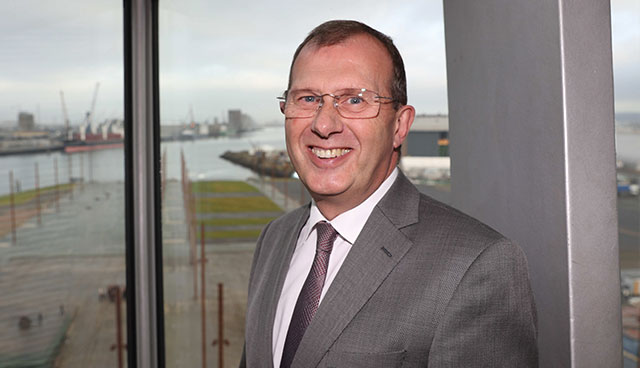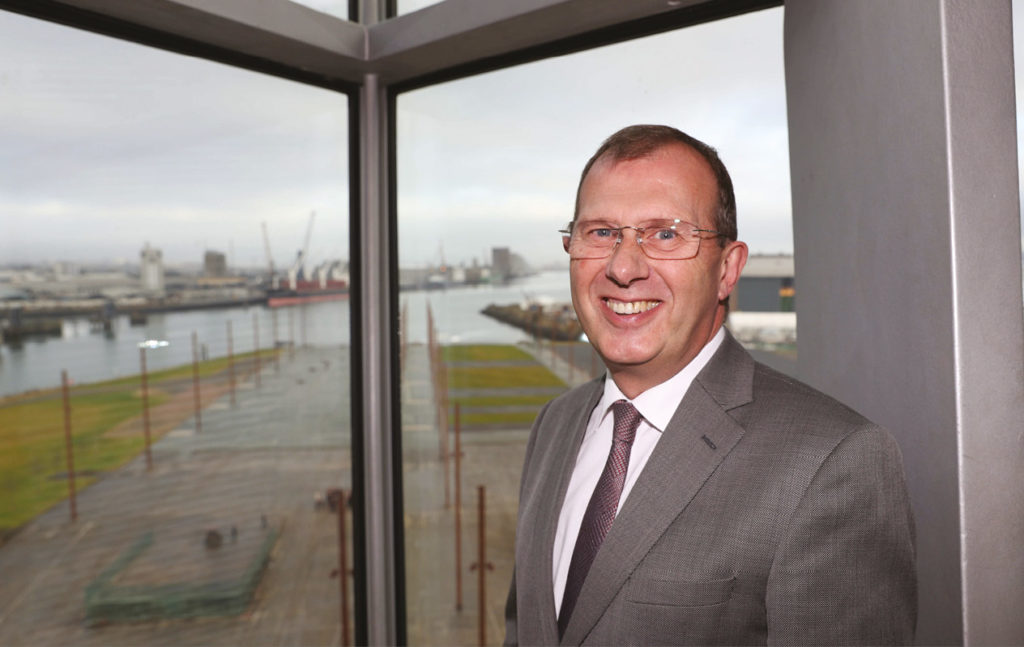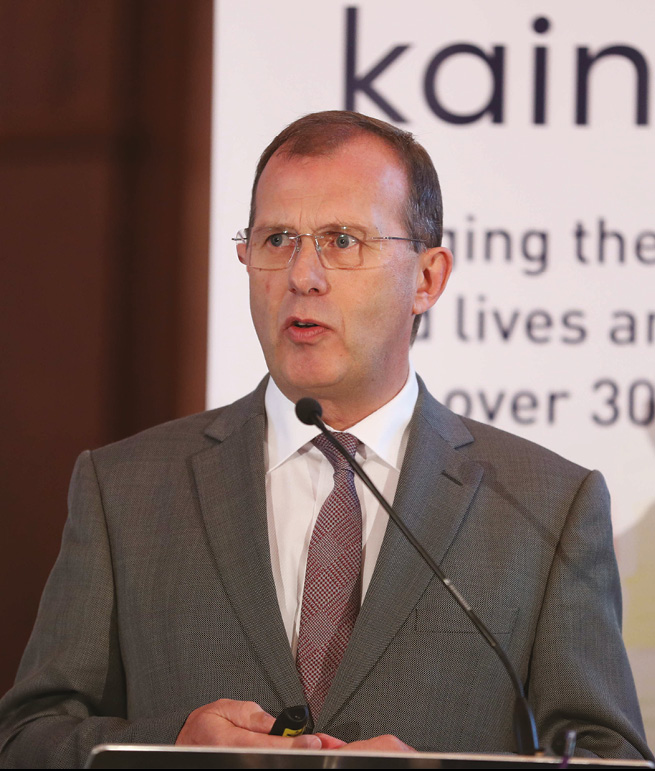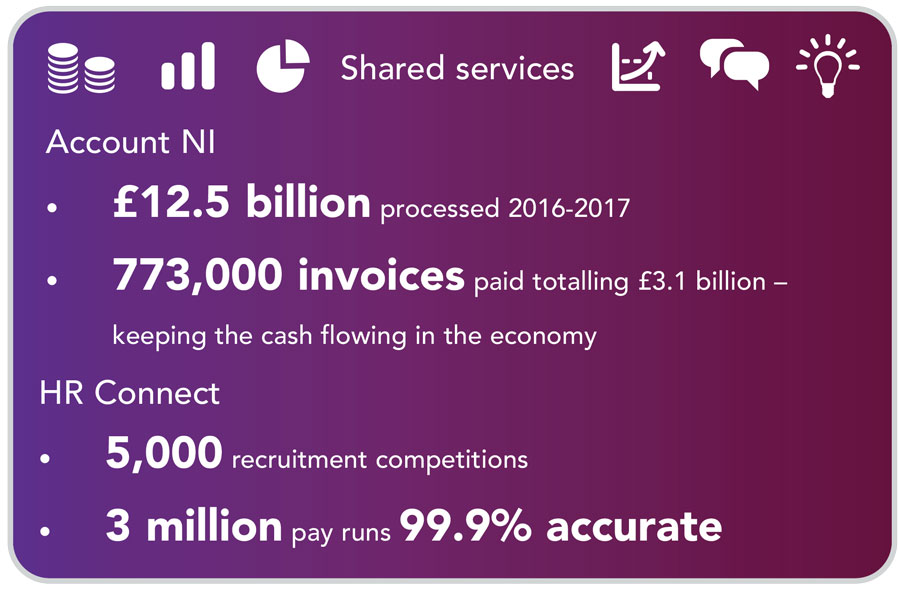Why digital matters


Paul Wickens, Chief Executive of NICS Enterprise Shared Services talks to Owen McQuade about how digital is transforming the way government delivers services and looks to the next phase of digital transformation.
Why is digital important? Paul Wickens, Chief Executive of NICS Enterprise Shared Services gives three reasons: “Firstly, people want it. Digital gives people services in a way that they want them. People are no longer consuming services in the traditional manner. Be it booking flights or MOT or doing their banking online, the public appetite for conducting their affairs digitally is ever increasing.” This is also the case for government services with “people no longer wanting to stand in an office and fill in a paper form or to wait on the end of a phone line”.
“The second reason is that digital is significantly more efficient in delivering services than traditional channels. With such a channel shift, the cost per transaction is significantly less than more traditional channels such as face-to-face interactions, phone or snail mail.
“The third reason, it gives the opportunity not just to digitise existing processes but to look for real transformation opportunities. We can look at the service from the user’s perspective and redesign a service based on user need. The most successful services we have developed have been on that transformative basis, rather than just enabling existing services,” he adds.
Looking to where the government digital services are now and what will be the next phase, Wickens says: “It is about creating momentum. We began with the ‘16 by 16’ programme. That allowed us to get momentum that will continue to drive future demand. With our experience from the ‘16 by 16’ programme, in terms of government services, and indeed all services, digital is proving to be the only way forward.”
The ‘16 by 16’ programme was an ambitious programme to digitise 16 government services by 2016 with a target of 3.5 million users. The programme has been surpassed by quite a margin. There are now over 30 digital services live today with over 13 million transactions of the new digital services, “and that is rising significantly on a fairly steep curve”.
“People are now getting over the trust issues, the ‘how easy is it to use’ issues and are realising they are easy to use and are as intuitive as booking a holiday online or even doing a google search,” he explains.
Where to next?
Building on the success of the ‘16 by 16’ programme, Wickens sees the focus being not on how many more digital services will be developed but more on developing a strategic harness to take the digital services agenda forward. “Business as usual for us now is the digital transformation of existing and new services. It is time to step back and look at the rationale and look at the strategies that need to be put in place.” Wickens and his team, together with key stakeholders across government are developing three aspects of this strategic stocktake: a new digital strategy – where we go to next; a new ICT strategy for government; and a cyber security framework for action for Northern Ireland.
“Business as usual for us now is the digital transformation of existing and new services. It is time to step back and look at the rationale and look at the strategies that need to be put in place.”
The new digital strategy will build on the ‘16 by 16’ programme and progress much of what has been learnt in delivering the programme. The ICT strategy has a more internal focus and will look to integrate new technology developments into the government platform and learn from previous contracts.
On cyber security, Wickens says that a local framework for action will build on the UK strategy with its three key themes: defend, deter and develop. “It is very much about cyber resilience,” he explains. Although he acknowledges that Northern Ireland was not caught out by the recent WannaCry cyber-attack on the NHS in Great Britain: “We do need to be vigilant and we are constantly trying to defend any potential vulnerability in our systems and also advise the wider public as to what they should be doing.” Actions being proposed to enhance the cyber resilience of Northern Ireland include creating a cyber security leadership board and a cyber security centre that will partner with many of the existing organisations involved in cyber security.
When asked if security concerns around public cloud services had affected government thinking on deploying cloud services, Wickens is clear on where government is heading: “We have mostly private cloud at present with some limited public cloud services. For me, the future will be a hybrid model of public and private cloud. We provide government-as-a-service based on our own private cloud with our own data centres and network capabilities at a very attractive cost proposition. But there is not a basic rationale as to why we shouldn’t be using more public cloud services in the future.”

Looking at emerging themes and learning points from the digital projects to date, he outlines a number of key issues that will be addressed in the coming digital strategy. “The benefits that are being realised from putting digital services online are not perhaps being currently fully quantified but they are clearly there. We need to consider how we accelerate the use of Agile across and within our departments and processes. With staff reductions over the past couple of years it is evident that digital services are playing a role in allowing resources to be freed up but we need to ensure that is more visible in order to help shape any future investment.”
Although there is no Executive at present, any future Programme for Government will be important. With the move towards outcomes based accountability, the uptake of online services will be a key metric going forward. Digital transformation of services links directly to this outcome.
Other issues to be addressed include the new GDPR Directive on data: “We are in as good a place as we would hope to be.” Wickens has just returned from a European digital summit attended by both the public and private sectors and was “staggered by the lack of knowledge and preparedness for GDPR in other jurisdictions”. Over the last 18 months the Northern Ireland Civil Service has created a team and detailed an action plan to address GDPR. It has also communicated the plan to key stakeholders including public facing events. “We have a clear action plan to meet our obligations under GDPR and our preparedness is very good. There will be some interesting challenges such as the right to be forgotten – there are implications for that right across government and it will be a big challenge.”
A related issue to GDPR is the new European Network Information Systems Directive, also known as the NIS Directive. There are a number of elements to this directive including a national cyber strategy and a computer security response team. Under the directive any cyber breach will required to be reported with the same penalties as GDPR. Although government and financial services will exempt from the directive, it will effectively regulate operators of essential services such as water and transport. Although there has been much more debate about GDPR, Wickens sees the NIS Directive as equally important, and will pose its own challenges.

Shared services
In concluding, Wickens highlights the role of digital in shared services. HR Connect has now facilitated over 5,000 recruitment competitions. There have been over three million pay runs with 99.9 per cent accuracy. Perhaps the most impressive figure is the amount Account NI processed in the last financial year: £12.5 billion, which is more than the turnover of M&S or John Lewis. All these services were delivered digitally – which emphasises how important digital is in delivering government services, including those internal shared services. Digital transformation has now become a norm and the next phase will be to harness digital technologies to deliver better outcomes across government. The new digital strategy will give that strategic direction for future delivery of government services.





